Opinion
Nepal and post-truth
A condition that is ironically being created in America and Europe has become a global phenomenon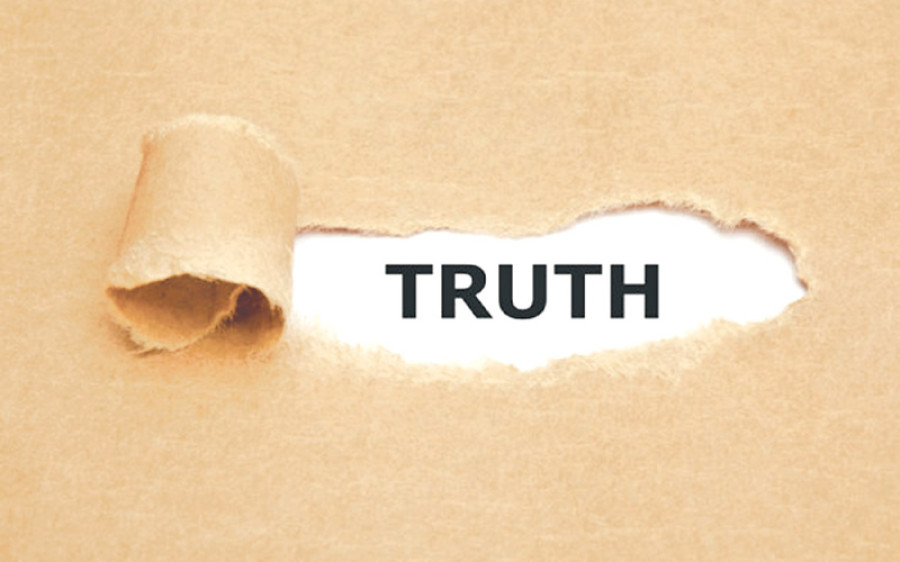
A headline in this newspaper “Government flouts deal it reached with Dr KC” (December 8) jolted me as I was preparing to start the day. The next line was even more eloquent which read, “makes mockery of the pact that calls for halting all affiliations”. I will not go into the substance of this news, which is apparent to those who have been following the story of the senior doctor’s Gandhian satyagraha for a good cause. I am struck by other headlines in the vernacular and English newspapers which feature news that is getting unbelievably bizarre. They report the gross violations of common people’s right to live, especially of those who are badly hit by the April earthquake despite the help by good-hearted people from several countries. There is news about bureaucratic atrocities, political stakeholders’ sharing of public money among themselves under one pretext or another, and cartels openly defying the law and societal norms. Money and media are used to disseminate fake information. This is an indication of a regime of post-truth, which has become a phenomenon everywhere today.
To understand it, I return to some recent discussions about “postality”, or about whatever is post in ideas and media reporting, organised by a small group of academics in Kathmandu, where I also expressed my views about the post-truth phenomenon. Though the subject warrants academic discussion as it concerns discipline and norms, it marks a very important shift from the regime of truth to one of post-truth. Discussing the topic made me feel it could open some relevant points of conversation regarding Nepal’s drift in the post-truth situation.
The new age
Post-truth has a comparatively recent origin with the non-liberal populist politics that involves a lot of pretexts, hypocrisy and creation of rumours. The relationship of truth with politics and political practice is very old, notably since the time of the 18th century British philosopher Jeremy Bentham whose concern with utilitarianism and sincerity is recalled today to show a grand departure from such vision. But in the very recent years—or rather months—post-truth has become a dominant power that is changing many aspects of our lives. Democratic principles are facing the most serious challenge and the great political and economic theories introduced by great economists and political thinkers are being defied. It is more serious than that. Thousands of children are being taken out of the rubble created by reckless bombings of hospitals and homes. The most precious sites of culture are being reduced to ruins, and the marginalised minorities, and women are becoming more vulnerable.
We see post-truth being discussed by serious scholars and newspapers today. I think it would be appropriate to refer to a long essay published in the Economist last month about post-truth occupying central ground in recent times. It says, “now no one even tries proving ‘the truth’. You can just say anything’…The post-truth strategy works because it allows people to forgo critical thinking in favour of having their feelings reinforced by sound-bite truthiness”. The paper links this scenario to truth politics and shows how social media are creating such a post-truth mechanism. Twitter, Facebook, etc are contributing to creating falsehood or non-truths and passing them as truth. The cataclysmic events happening in the world and the erosion of liberal values have given mendacity a place that it should not deserve. All the major power wielders, budding or old dictators, the erstwhile cold war powerbrokers, and also leaders of our times churn out post-truths in reckless manners. Post-truth is the name of false and fake news and views that have damaging effects. They will be challenged, but they will certainly leave their impact in the world.
Art of the lie
David Runciman, in his well-known Princeton University book Political hypocrisy: the mask of power, from Hobbes to Orwell and beyond (2008), says that “the most dangerous form of political hypocrisy is to claim to have a politics without hypocrisy.” The recent American election and the populist shift in Europe and elsewhere strongly mark a big shift to the post-truth regime. If untruth is also part of post-truth, the world should try to adjust itself to a culture of lies and hypocrisy. But the positive side is also equally strong. There are many examples that cannot be discussed in this limited space.
The post-truth condition, which is ironically being created in America and Europe today, has become a global phenomenon. But the post-truth culture is being favourably utilised by people who want to acquire power and take advantage of people’s helplessness. Regarding the Nepali scenario whose picture is briefly sketched in the beginning, we see forces promoting post-truth and those that fight it so as to establish order and create a better situation. A few serious media outlets here have done a great job of fighting to communicate what truth is. The post-truth situation is one of lies, mendacity and creation of fake news. The credulous Nepali public will be easy victims of such a trend of lying. One other thing disturbs me very much, which is, we are losing the moral energy to fight the hypocrisy and the spread of untruth. People who form small coteries to take power and rob the citizens of their rights and means of livelihood will promote post-truth and let that rule over us all.
One final question remains to be answered. How are we going to save ourselves from the effects of the post-truth condition that is now shaping the very structure of power and opposition even in the most powerful countries like America? Bigotry, hatred and an uncanny rise of the notion that “might is right” will create more post-truth conditions. India has a home-brew post-truth situation. But in Nepal those who are in power will resort to creating more post-truth conditions. We can save Nepal from the effects of such conditions only through vigilance.




 19.12°C Kathmandu
19.12°C Kathmandu
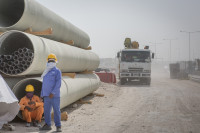
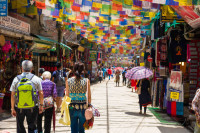

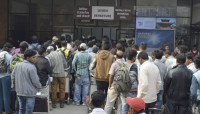
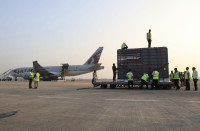



%20(1).jpg&w=300&height=200)

